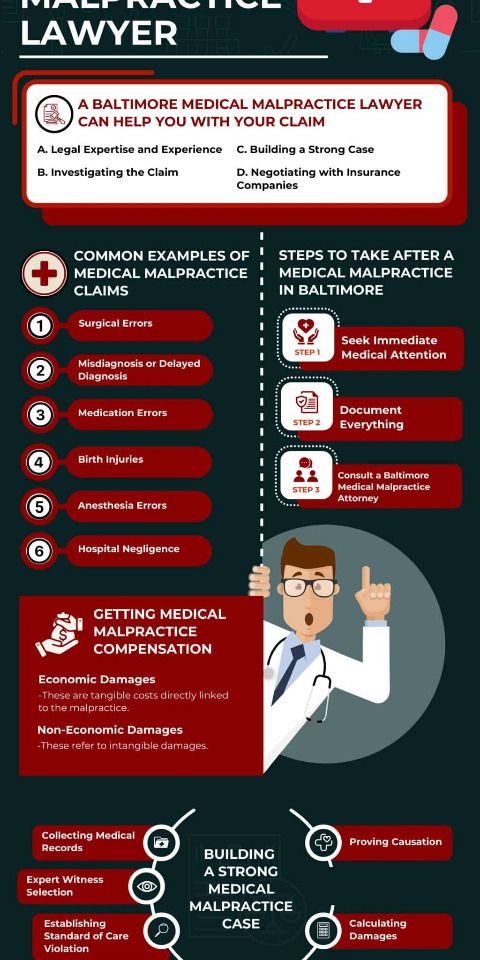Medical malpractice cases are complex, requiring legal expertise to navigate effectively. If you suspect that medical negligence caused harm to you or a loved one, it’s essential to act quickly. This guide explores when to call a medical malpractice personal injury lawyer, the signs of malpractice, and the steps to take to protect your rights.

1. What Is Medical Malpractice?
Medical malpractice occurs when a healthcare provider’s negligence results in harm or injury to a patient.
Examples of Medical Malpractice
- Misdiagnosis: Failing to diagnose or incorrectly diagnosing a condition.
- Surgical Errors: Performing unnecessary surgeries or making critical mistakes during procedures.
- Medication Errors: Prescribing the wrong medication or dosage.
- Birth Injuries: Negligence during childbirth causing harm to the baby or mother.
Fact: Over 250,000 deaths annually in the U.S. are linked to medical errors, making it a leading cause of mortality.
2. Signs You Should Call a Medical Malpractice Lawyer
Identifying when to involve a lawyer can save you time and improve your chances of success.
a. You Suspect Negligence
- Treatment deviates from standard medical practices.
- Lack of informed consent for procedures.
b. The Injury Is Severe
- Long-term consequences like disability or chronic pain.
- Extensive medical expenses and ongoing care requirements.
c. The Provider Denies Responsibility
- The healthcare provider refuses to acknowledge mistakes or dismisses your concerns.
d. Insurers Offer a Low Settlement
- Insurance companies may downplay your claim’s value or deny it outright.
e. You’re Unsure About Legal Deadlines
- Each state has a statute of limitations for filing medical malpractice lawsuits, ranging from 1 to 3 years in most cases.
3. How a Medical Malpractice Lawyer Can Help
Hiring a medical malpractice personal injury lawyer provides critical advantages:
Case Evaluation
- Determining whether your case meets the criteria for medical malpractice.
Gathering Evidence
- Collecting medical records, witness statements, and expert testimony to strengthen your claim.
Negotiating Settlements
- Ensuring you receive fair compensation for damages, including medical expenses, lost wages, and pain and suffering.
Representation in Court
- If negotiations fail, a lawyer can effectively present your case in court to maximize the chances of success.

4. Common Challenges in Medical Malpractice Cases
Proving Negligence
- Establishing that the provider deviated from accepted medical practices.
Complex Medical Terms
- Lawyers bridge the gap between technical medical jargon and legal arguments.
Dealing with Insurance Companies
- Insurers often prioritize their profits over fair settlements. A lawyer can counter their tactics effectively.
5. Steps to Take Before Calling a Lawyer
Document Everything
- Keep detailed records of treatments, medications, and interactions with healthcare providers.
Request Medical Records
- Obtain a copy of your medical history to identify discrepancies or errors.
Seek a Second Opinion
- Another doctor may confirm whether malpractice occurred.
Act Quickly
- Delays in contacting a lawyer may jeopardize your claim due to statutes of limitations.
Pro Tip: Early legal intervention improves the likelihood of a successful outcome.
6. Benefits of Hiring a Medical Malpractice Lawyer
Expertise in Medical Negligence Cases
- Specialized lawyers understand the complexities of malpractice laws and medical standards.
Access to Medical Experts
- Lawyers collaborate with experts to provide compelling evidence in your favor.
Focus on Recovery
- Handling legal aspects allows you to focus on healing while your lawyer fights for your rights.
Maximized Compensation
- Lawyers ensure you’re compensated for both economic and non-economic damages.
7. What Questions Should You Ask When Hiring a Lawyer?
- Do you specialize in medical malpractice cases?
- What is your success rate with similar cases?
- How will you gather evidence and expert testimony?
- What are your fees, and do you work on a contingency basis?
- How long do you expect the case to take?
Frequently Asked Questions
Q: How long does a medical malpractice case take?
It depends on the case’s complexity but can range from several months to a few years.
Q: Can I file a malpractice claim for a loved one?
Yes, if you are their legal guardian or representative, you can file on their behalf.
Q: What damages can I claim in a malpractice case?
Damages include medical expenses, lost wages, pain and suffering, and punitive damages in severe cases.

Conclusion
Calling a medical malpractice personal injury lawyer is crucial when facing the consequences of medical negligence. From navigating legal complexities to securing fair compensation, a lawyer ensures your rights are protected. Don’t wait—consult an expert to get the justice you deserve.
